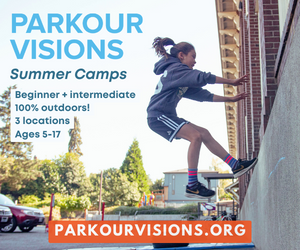Whether you are a parent, grandparent, teacher, or caregiver, I can almost guarantee there have been times that you may have lost your temper with your children. Perhaps, even more than once, in a particularly stressful day.
I know I have with my students. It feels awful, right? We spend the rest of the day feeling embarrassed, ashamed, and like a huge failure. Maybe the situation doesn’t seem as stressful in the aftermath, and we are left wondering if we are bad people for having lost our temper on our children, who more than likely were not the source of our frustration (for me, it is usually a menagerie of life things I am dealing with that then gets projected onto the children).
Either way, it is not a good feeling. At all. However, this feeling can lead to some great learning opportunities for both ourselves and our children. In these moments (and after), we have a perfect opportunity to help our kids learn a valuable life lesson: what it means to apologize.

There are two big pieces of this that are important for children to learn: that they deserve apologies from us and that apologies are meaningful. Let’s dig a little deeper and see what this looks like.
Apologizing to Children
First, we should always be willing and open to the idea of apologizing to our children. So often, it seems that children are not given the respect they deserve. Some people may see children as beneath them, and therefore ignore and push away their thoughts, ideas, and opinions. This is not only damaging to the development of their sense of self, it also can lead to challenging behaviors and a lack of empathy. People who have this mindset towards children may never consider apologizing to a child.
Growing up, I don’t think an adult ever truly apologized to me. I’m sure many people are able to say the same thing. This can lead to adults having a difficult time expressing their feelings and taking accountability for how their actions affect others.
So, let’s change that cycle. When you feel like you may have lost your temper, take a few minutes to think and collect your thoughts. Then, sit down with your children and talk. Discuss what happened and how you felt; ask them how it made them feel. Encourage an open dialogue where your children are allowed to speak their truth and tell you their feelings. Use this time to offer a sincere and honest apology to your children.
This is a great time to model this language for children. Here is a quick example from my Kindergarten classroom:
- There was a day where it seemed like everything that could possibly go wrong did. I raised my voice at my students and felt absolutely awful about it. After a few minutes, I gathered them together and talked with them. I explained to them that I was feeling very stressed and anxious because of some things going on that day. I told them that I was sorry that I raised my voice; that it was not fair to take out my frustration on them. I opened the discussion up for them to share some times that they may have felt overwhelmed and how they dealt with that. They were so receptive to this conversation and immediately said things like, “It’s ok, Mr. Samuel, everyone gets mad sometimes.” It was a great conversation and learning experience for all of us.
It is ok to be honest with children. When we do this, we are modeling for them that it is ok to have big feelings and even more important to talk about them.
During that conversation, I let the children know some things that had made me frustrated: an argument with my husband, a late delivery from Amazon, etc. They were able to connect my frustrations to their own lifes and could now use new words like “anxious” to describe how they were feeling. What started as a pretty frustrating day ended up being so beautiful.

What Does “Sorry” Mean?
Second, we should be helping children to understand the power behind the words “I’m sorry.”
Often, we automatically tell children to say sorry when something happens and move on with our day. This is not teaching the children what we think it is. When we encourage or allow them to just say sorry and move on, we are ignoring the value and power of the word.
Instead, we should be encouraging our children to think empathetically and to not apologize if they are not truly sorry. When we shift our language from “Ok, say sorry,” to “Let’s talk about what happened and how it made you feel,” we can help support children in this discovery of empathy. Encouraging children to think about how their actions affect others and what that can mean for someone else’s spirit is much more important than saying “sorry.”
This can help lead to a much more empathetic society than one where people do not know how to deal with their emotions and cannot see how their actions have an affect on the people around them. Here are some quick examples of how to use this language in an organic conversation with children:
- “Let’s talk about what happened. Why did you do this? How were you feeling?”
- “How do you think that could make them feel?”
- “Let’s ask them how that made them feel and see how it makes us feel to hear.”
- “What are some ways that we could help them to work through these feelings?”
Doing this may obviously take more time than a quick apology, but the outcome is very much worth it. Children deserve open and honest communication from us as adults to show them how to express themselves in a healthy way and how to show empathy to those around us.
This is also another great way to remind children of their connection to the world around them and of their responsibility to one other in this life. Isn’t that the most important thing we want our children to learn anyway?


















